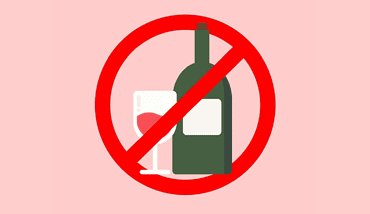Essential first aid for parents: 3 ways to save your baby’s life – Any first-time parent knows there is nothing quite as overwhelming as bein g in charge of a new and vulnerable life. It’s easy to see why new parents can feel daunted when you factor in hormones, sleep deprivation, the newfound responsibility and desire to protect their child as well as an information overload!
g in charge of a new and vulnerable life. It’s easy to see why new parents can feel daunted when you factor in hormones, sleep deprivation, the newfound responsibility and desire to protect their child as well as an information overload!
Essential skills for new parents
One of the best investments any couple can make when they are expecting is learning first aid. Accidents are bound to happen. However, taking a first aid course can relieve some of the stress as parents feel more prepared and know what to do in those first vital minutes.
Accidents happen
As vigilant as we try and be, it is impossible to watch our children every second of the day and no environment can ever be 100% safe. Accidents are inevitable and they are part of growing up as children need freedom to explore their environment.
In fact, every year, around 1 million children attend A&E due to accidents. Accidental injuries are one of the most common causes of death in children over 1 year of age in the UK. Every year they leave many thousands permanently disabled or disfigured.
Peace of mind
Attending a first aid course means you can let your children develop and flourish, experiencing inevitable minor bumps and bruises, with the peace of mind that you have the knowledge and skills to recognise and help if something is more seriously wrong. As a parent it is likely that you will be the first on hand if anything goes wrong or first aid is required.
Life and death
Basic first aid can mean the difference between life and death and can massively affect the extent of your child’s recovery, the amount of pain they’re in and how long they need to be in hospital. Prompt first aid can even lead to someone recovering completely without the need for medical intervention at all!
Recognising when things are wrong
On a quality first aid course, parents will understand:
- How to recognise when something is seriously wrong
- What signs they should look out for
- Whether it is better to phone an ambulance, take their child to A&E or visit their GP
- When phoning 111 versus 999 is the best option
- When you can rely on your first aid skills.
Many parents book onto our courses when they’re pregnant, some wait until their babies have arrived and still more are prompted when they start weaning.
The advice is to gain these skills as soon as you can and gain the peace of mind from knowing that you are able to recognise if something is seriously wrong and know how to help. Parents can book on as individuals, arrange a group course at a time and place to suit them, or learn at work.
Keep your skills fresh
Training must be refreshed regularly to ensure the information is current and fresh in your mind in case you need to jump into action. Refreshers can be practical or online. The most important message is not to let yourself be in the position of wishing you had known what to do.
Click here for your Comprehensive, interactive, online First Aid for Babies course
Most common medical emergencies
The 3 most common first aid emergencies in the under 5’s include burns, choking and head injuries.
Choking
Babies love to put things in their mouths and anything small enough to fit through a loo roll can prove a potential choking hazard. When you start feeding your baby solids, cut foods into sticks rather than into perfect circles because these could block the airway completely if they were to get stuck.
Babies have sensitive gag reflexes and often appear to struggle when trying new food textures and this can be frightening. The majority of the time they manage to clear the obstruction themselves, repositioning them with their head lower than their body can help. Keep as calm as you can as they will quickly pick up on panic and this can make things worse. If they are able to cough encourage them to do so – if they are quiet and struggling to breathe, help immediately.
Choking – how to help
- Stay as calm as you can.
- If they are able to cough, reposition them to see if they can clear it themselves.
- Have a quick look in the baby’s mouth and carefully remove anything obvious. NEVER blindly sweep inside the baby’s mouth with your fingers. It can cause damage and push the obstruction further down.
- Lay the baby downwards across your forearm, supporting under their chin.
- With your hand hit the baby up to 5 times firmly between their shoulder blades
- Check after each back blow to see if the obstruction has cleared
- If still choking; lay the baby on its back across your knees, head downwards. Place two fingers in the centre of their chest at the nipple line, and give up to five, firm upward chest thrusts.
- If the baby is still choking, call 999/112 and continue giving baby five back blows, alternated with five chest thrusts, until help arrives
- If the baby becomes unconscious start CPR immediately.
Burns and Scalds
Knowing what to do in the case of a burn can make a massive difference in reducing the amount of pain and scarring. A hot drink that was made nearly 15 minutes ago can still be hot enough to scald a baby.
- Remove loose clothing covering the burn. Never remove clothing that has stuck to the skin
- For all burns, run cool running water over the burn for 20 minutes
- Reassure the child and keep them warm and dry. Look out for signs of shock
- Phone an ambulance; particularly if a large area is affected, if the skin is broken or blistered, or if they show signs of shock. Keep the area under cool running water whilst you are waiting for the ambulance.
Never touch the burn, pop blisters, or put on any creams whatsoever. Take burns very seriously and always seek medical advice.
Burns to the hands, face, feet, genitals and airways are particularly serious. Always get emergency help if you are seriously worried.
Always get an appropriate health professional to assess a burn.
Head Injuries
Babies and children often bang their heads and it can be difficult to judge how seriously hurt they are. Fortunately, most head injuries are superficial or merely injure the scalp. This is usually more frightening than life-threatening as the head and face are very vascular and consequentially bleed profusely. A severe blow to the head or repeated injuries can cause damage to the brain and this is far more serious.
What to look for following a head injury:
Call 999 or 112 if your baby loses consciousness, even momentarily or if a child of any age has any of these symptoms:
- Won’t stop crying
- Complains of head and neck pain
- Isn’t walking normally
If the child is not an infant, has not lost consciousness, and is alert and behaving normally after the fall or blow:
- Apply a wrapped ice pack or instant cold pack to the injured area for 10 minutes.
- Observe your child carefully for the next 24 hours. If you notice any worrying signs (see below), get medical help immediately.
If the incident has occurred close to bedtime or nap time and your child falls asleep soon afterwards, check in continually to look for anything unusual. For example, twitching limbs or disturbances in colour or breathing. It is perfectly ok for your child to go to sleep. There is no need to keep a child awake after a head injury.
However do not confuse falling asleep with losing consciousness
- What is a seizure? - 13th March 2025
- Febrile Convulsions and Seizures in Children - 13th March 2025
- Why women are less likely to receive CPR or survive cardiac arrest - 6th March 2025









